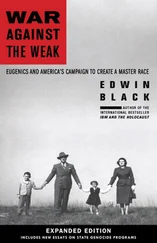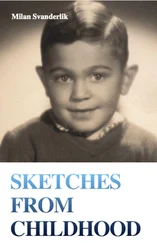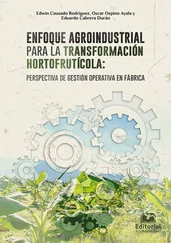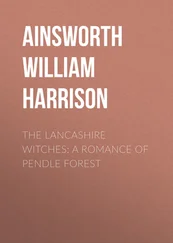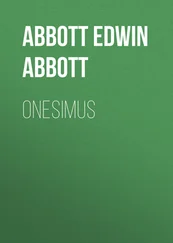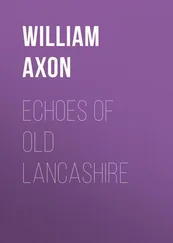Edwin Waugh - Lancashire Sketches
Здесь есть возможность читать онлайн «Edwin Waugh - Lancashire Sketches» — ознакомительный отрывок электронной книги совершенно бесплатно, а после прочтения отрывка купить полную версию. В некоторых случаях можно слушать аудио, скачать через торрент в формате fb2 и присутствует краткое содержание. Жанр: Путешествия и география, foreign_antique, foreign_prose, на английском языке. Описание произведения, (предисловие) а так же отзывы посетителей доступны на портале библиотеки ЛибКат.
- Название:Lancashire Sketches
- Автор:
- Жанр:
- Год:неизвестен
- ISBN:нет данных
- Рейтинг книги:4 / 5. Голосов: 1
-
Избранное:Добавить в избранное
- Отзывы:
-
Ваша оценка:
- 80
- 1
- 2
- 3
- 4
- 5
Lancashire Sketches: краткое содержание, описание и аннотация
Предлагаем к чтению аннотацию, описание, краткое содержание или предисловие (зависит от того, что написал сам автор книги «Lancashire Sketches»). Если вы не нашли необходимую информацию о книге — напишите в комментариях, мы постараемся отыскать её.
Lancashire Sketches — читать онлайн ознакомительный отрывок
Ниже представлен текст книги, разбитый по страницам. Система сохранения места последней прочитанной страницы, позволяет с удобством читать онлайн бесплатно книгу «Lancashire Sketches», без необходимости каждый раз заново искать на чём Вы остановились. Поставьте закладку, и сможете в любой момент перейти на страницу, на которой закончили чтение.
Интервал:
Закладка:
Milnrow is an old village, a mile and a half eastward from the Rochdale station. The external marks of its antiquity are now few, and much obscured by the increase of manufacture there; but it is, for many reasons, well worth a visit. It is part of the fine township of Butterworth, enriched with many a scene of mountain beauty. A hardy moor-end race, half farmers, half woollen-weavers, inhabit the district; and their rude, but substantial cottages and farmsteads, often perch picturesquely about the summits and sides of the hills, or nestle pleasantly in green holms and dells, which are mostly watered by rivulets, from the moorland heights which bound the township on the east. There is also a beautiful lake, three miles in circumference, filling a green valley, up in the hills, about a mile and a half from the village. Flocks of sea-fowl often rest on this water, in their flight from the eastern to the western seas. From its margin the view of the wild ridges of the "Back-bone of England" is fine to the north, while that part of it called "Blackstone Edge" slopes up majestically from the cart-road that winds along the eastern bank. A massive cathedral-looking crag frowns on the forehead of the mountain. This rock is a great point of attraction to ramblers from the vales below, and is called by them "Robin Hood Bed." A square cavity in the lower part is called "Th' Cellar." Hundreds of names are sculptured on the surface of the rock, some in most extraordinary situations; and often have the keepers of the moor been startled at peep of summer dawn by the strokes of an adventurous chiseller, hammering his initials into its hard face as stealthily as possible. But the sounds float, clear as a bell, miles over the moor, in the quiet of the morning, and disturb the game. One of the favourite rambles of my youth was from Rochdale town, through that part of Butterworth which leads by "Clegg Hall," commemorated in Roby's tradition of "Clegg Ho' Boggart," and thence across the green hills, by the old farmhouse, called "Peanock," and, skirting along the edge of this quiet lake—upon whose waters I have spent many a happy summer day, alone—up the lofty moorside beyond, to this rock, called "Robin Hood Bed," upon the bleak summit of Blackstone Edge. It is so large that it can be seen at a distance of four miles by the naked eye, on a clear day. The name of Robin Hood, that brave outlaw of the olden time—"The English ballad-singer's joy"—is not only wedded to this wild crag, but to at least one other congenial spot in this parish; where the rude traditions of the people point out another rock, of several tons weight, as having been thrown thither, by this king of the green-woods, from an opposite hill, nearly seven miles off. The romantic track where the lake lies, is above the level of Milnrow, and quite out of the ordinary way of the traveller; who is too apt to form his opinion of the features of the whole district, from the sterile sample he sees on the sides of the rail, between Manchester and Rochdale. But if he wishes to know the country and its inhabitants, he must get off that, "an' tak th' crow-gate," and he will find vast moors, wild ravines, green cloughs, and dells, and
Shallow rivers, to whose falls,
Melodious birds sing madrigals,
which will repay him for his pains. And then, if he be a Lancashire man, and a lover of genius, let him go to Milnrow—it was the dwelling-place of Tim Bobbin, with whose works I hope he is not unacquainted. His written works are not much in extent. He was a painter, and his rough brush was replete with Hogarthian sketches, full of nature, and radiant with his own broad, humourous originality. He also left a richly-humourous dialectic tale, a few Hudibrastic poems and letters, characteristic of the sterling quality of his heart and head, and just serving to show us how much greater the man was than his book.
I was always proud of Tim, and in my early days have made many a pilgrimage to the village where he used to live, wandering home again through the green hills of Butterworth. Bent on seeing the place once more, I went up to Hunt's Bank, one fine day at the end of last hay-time, to catch the train to Rochdale. I paid my shilling, and took my seat among a lot of hearty workmen and country-folk coming back from Wales and the bathing places on the Lancashire coast. The season had been uncommonly fine, and the trippers looked brighter for their out, and, to use their own phrase, felt "fain at they'rn wick," and ready to buckle to work again, with fresh vigour. The smile of summer had got into the saddest of us a little; and we were communicative and comfortable. A long-limbed collier lad, after settling his body in a corner, began to hum, in a jolting metre, with as much freedom of mind as if he was at the mouth of a lonely "breast-hee" on his native moorside, a long country ditty about the courtship of Phœbe and Colin:—
Well met, dearest Phœbe, oh, why in such haste?
The fields and the meadows all day I have chased,
In search of the fair one who does me disdain,
You ought to reward me for all my past pain.
The late-comers, having rushed through the ticket-office into the carriages, were wiping their foreheads, and wedging themselves into their seats, in spite of many protestations about being "to full o'ready." The doors were slammed, the bell rung, the tickets were shown, the whistle screamed its shrill signal, and off we went, like a street on wheels, over the little Irk, that makes such a slushy riot under the wood bridge by the college wall. Within the memory of living men, the angler used to come down the bank, and settle himself among the grass, to fish in its clear waters. But since Arkwright set this part of the world so wonderfully astir with his practicable combination of other men's inventions, the Irk, like the rest of South Lancashire streams, has been put to work, and its complexion is now so "subdued to what it works in," that the angler comes no more to the banks of the Irk to beguile the delicate loach, and the lordly trout in his glittering suit of silver mail.
The train is now nearly a mile past Miles Platting, and about a mile over the fields, on the north side, lies the romantic dell called "Boggart Hole Clough," hard by the village of Blackley—a pleasant spot for an afternoon walk from Manchester. An old Lancashire poet lives near it, too, in his country cottage. It is a thousand to one that, like me, the traveller will see neither the one nor the other from the train; but, like me, let him be thankful for both, and ride on. Very soon, now, appears, on the south side of the line, the skirts of Oldham town, scattered about the side and summit of a barren slope, with the tower of the parish church, peeping up between the chimneys of the cotton factories behind Oldham Edge. If the traveller can see no fine prospective meaning in the manufacturing system, he will not be delighted with the scene; for the country has a monotonous look, and is bleak and sterile, with hardly anything worthy of the name of a tree to be seen upon it. But now, about a hundred yards past the Oldham Station, there is a little of the picturesque for him to feast on. We are crossing a green valley, running north and south. Following the rivulet through the hollow, a thick wood waves on a rising ground to the south. In that wood stands Chadderton Hall, anciently the seat of the Chaddertons, some of whom were famous men; and since then, the seat of the Horton family. The situation is very pleasant, and the land about it looks richer than the rest of the neighbourhood. There was a deer-park here in the time of the Hortons. Chadderton is a place of some note in the history of the county; and it is said to have formerly belonged to one of the old orders of knighthood. On the other side of the line, about a mile and a half off, the south-east end of Middleton is in sight; with its old church on the top of a green hill. The greater part of the parish of Middleton, with other possessions in South Lancashire, belonging to the Ashetons from before Richard III., when extraordinary powers were granted to Randulph Asheton. The famous Sir Ralph Asheton, called "The Black Lad," from his wearing black armour, is traditionally said to have ruled in his territories in South Lancashire with great severity. In the town of Ashton, one of the lordships of this family, his name is still remembered with a kind of hereditary dislike; and till within the last five or six years he has been shot and torn to pieces, in effigy, by the inhabitants, at the annual custom of "The Riding of the Black Lad." The hero of the fine ballad called "The Wild Rider," written by Bamford, the Lancashire poet, was one of this family. The Middleton estates, in 1776, failing male issue, passed by marriage into the noble families of De Wilton and Suffield. Now, many a rich cotton spinner, perhaps lineally descended from some of the villain-serfs of the "Black Lad," has an eye to buying the broad lands of the proud old Ashetons.
Читать дальшеИнтервал:
Закладка:
Похожие книги на «Lancashire Sketches»
Представляем Вашему вниманию похожие книги на «Lancashire Sketches» списком для выбора. Мы отобрали схожую по названию и смыслу литературу в надежде предоставить читателям больше вариантов отыскать новые, интересные, ещё непрочитанные произведения.
Обсуждение, отзывы о книге «Lancashire Sketches» и просто собственные мнения читателей. Оставьте ваши комментарии, напишите, что Вы думаете о произведении, его смысле или главных героях. Укажите что конкретно понравилось, а что нет, и почему Вы так считаете.

